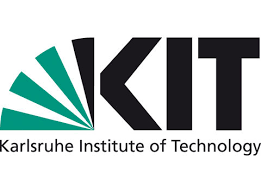Karlsruher Institute for Technology: Sustainable power generation with low temperatures
Low-temperature heat, such as that generated as waste heat in industry or in geothermal power plants, offers great potential for a sustainable and needs-based power supply. With the power plant technology center MoNiKa (stands for: Modular Low Temperature Cycle Karlsruhe), a research infrastructure that is unique in Europe has gone into operation at the Karlsruhe Institute of Technology (KIT). The aim is to make the conversion of excess heat into electricity in the Organic Rankine Cycle (ORC) more efficient and environmentally friendly.
With a view to generating electricity with the lowest possible CO2 emissions and energy efficiency, low-temperature heating has become increasingly important in recent years. “Instead of dissipating heat, which is already available as excess, into the environment, it makes more sense to continue to use it and thus produce electricity,” explains Dr. Dietmar Kuhn, Head of the Energy and Process Engineering Working Group at the Institute for Thermal Energy Technology and Safety (ITES) at KIT. So-called ORC systems are used to convert heat below 200 degrees Celsius to supply private households with electricity. They are based on the Organic Rankine Cycle – a process that is named after the British founder of thermodynamics, William John Macquorn Rankine, and is best known from geothermal power plants.
This is a liquid-vapor cycle in which a fluid is pumped in a circle and heated under increasing pressure until it evaporates. The hot steam is passed through a turbine, which removes the pressure and temperature from it and converts it into kinetic energy and electricity. Since the boiling point of water under pressure is a few hundred degrees and thus significantly higher than what a low-temperature source such as geothermal energy can provide, other fluids are used as working media in the ORC process, unlike in a coal-fired power station, for example. In the MoNiKa technical center, the experts work with propane, which has a very low GWP factor that indicates the global warming potential (GWP stands for Global Warming Potential).
Strategies for increasing the efficiency of ORC systems
So far, the efficiency, i.e. the electricity yield from excess heat, has been only 10 to 15 percent for ORC systems. The central goal of the Karlsruhe scientists is therefore to develop new strategies for increasing the efficiency of ORC systems and their CO 2-Lower footprint. “MoNiKa offers a research and development infrastructure that is state-of-the-art and unique in Europe,” emphasizes Kuhn. In contrast to most ORC power plants, the steam cycle in the technical center is operated supercritically. That means: With regard to temperature, pressure and density, the so-called “critical point” is exceeded at which a gas becomes liquid and vice versa, and the phase transitions become fluid. “This enables us to increase the electricity yield by twenty to thirty percent,” says Kuhn.
The modular technical center has a heating system that simulates the low-temperature heat source. A comprehensive sensor system for measuring temperatures, pressures and flow rates makes it possible to compare data from ongoing operations with model calculations and thus to increase the quality of the forecast. On this basis, the researchers want to analyze central components such as the heat exchanger or the innovative hybrid condenser and optimize them so that they are more energy-efficient and environmentally friendly. One of the goals is to reduce or even avoid leaks in the working group.
Technical center for application-oriented research
MoNiKa achieves a thermal output of one megawatt and thus an order of magnitude with which the research results can be easily transferred to practice and scaled. The technical center, at which the first experiments are already running, is to be used primarily for application-oriented research projects and to be linked to the KIT Energy Lab 2.0 in the long term. Kuhn and his team are currently working with interested industrial partners to identify research topics and needs. The major investment project, as part of which the power plant technical center at ITES was built, ran from 2013 to 2021 and was funded by the Federal Ministry of Education and Research with 4.4 million euros.

